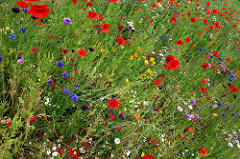Pollen found in one of the Shanidar graves suggests that Neanderthals, too, buried flowers with their dead.
The pollen could be mere coincidence—
traces left by a prehistoric rat
that ate flowers near the grave—but we prefer
believing cavemen buried blossoms there.
See the bereaved weeping? Over foothills
she lumbers. Mammoths trumpet in the distance.
All flowers were wild then. Grape hyacinth,
cornflower, hollyhock: she gathers armfuls,
asking Why? She lays the bouquet on his chest,
closes him into the cave floor. Perhaps
she says a prayer. See? Even from this distance
we dream of gardens where there should be stone.
Elizabeth Hazen is a poet and essayist whose work has appeared in Best American Poetry 2013, Southwest Review, The Threepenny Review, The Normal School, and other journals. She lives in Baltimore.
[Click here to purchase your copy of Issue 08]




